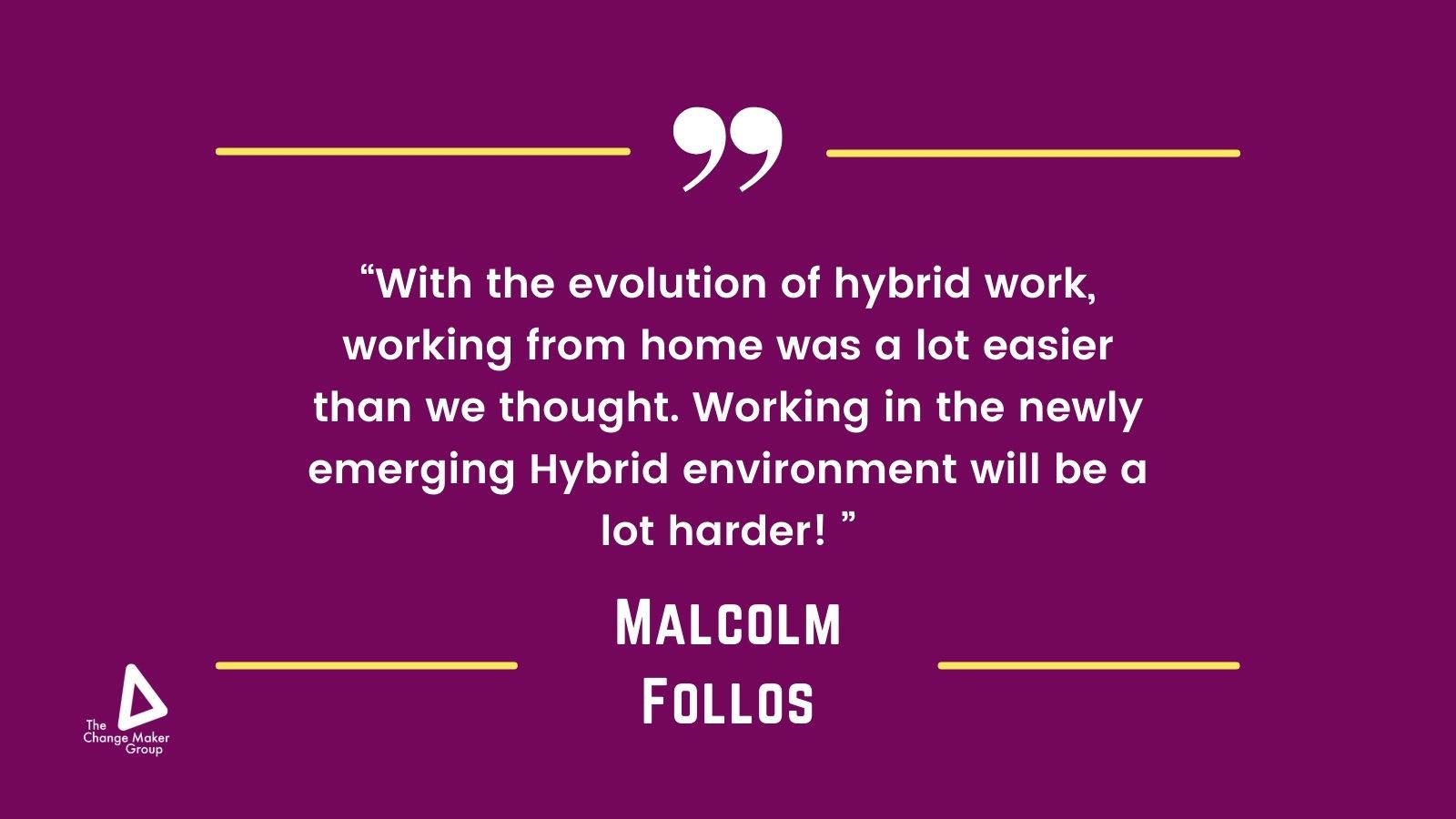With the evolution of hybrid work, working from home was a lot easier than we thought. Working in the newly emerging Hybrid environment will be a lot harder! Malcolm Follos writes…

It is clear that the global social experiment affecting all of us in the world of work has still some way to go. Organisations are grappling with the emerging paradigm of flexible, hybrid and remote working as they seek to optimize their position in this new world of work.
Moreover, it is fair to say no one has found the perfect answer. Most organisations are taking a ‘test and learn’ approach. Thus bumping into the guiderails of employment contracts, customer demands and the aspirations and personal desires of the talent they need to retain and attract if they are to survive and grow.
We see some extreme views emerging such as Elon Musk, the CEO of Tesla, recent announcement to all his executive teams:
“Everyone at Tesla is required to spend a minimum of 40 hours in the office per week. He says, “to be super clear,” this can’t be “some remote pseudo office” but rather where their actual colleagues are located. “If you don’t show up,” he demanded, “we will assume you have resigned.”
Well this is pretty clear . It may well work, or it may backfire bigtime, only time will tell. Other global organisations have a far more laissez-faire attitude, content to experiment with different work models to suit different constituencies in their workforce.
Workplace Biases
What is clear is that there are lot of pre-existing workplace biases still in play that are trying to re-assert themselves now the pandemic is receding.
The working week for example is still a thing. Why? We live in the digital age. Even pre-pandemic work was bleeding into home and personal life. For many people, the ‘hours-of-work’ element of their employment contract is viewed much the same as Italian drivers view their Highway Code – for information and guidance only! Many senior leaders and managers consider that being ‘at work’ is far more a state of mind than a function of the time on their watch!
Place of Work – the pandemic shows us that work and place can easily be de-coupled. For some is a total nightmare, as their home and personal circumstances are simply not suited to productive work.
Many find the exact opposite is true. Commuting across the living room is far better for them, their finances and the planet, than the daily commute to any ‘office’. The loss of community, dilution of culture and serendipitous interactions with colleagues many consider a small price to pay by comparison.
Herein lies the seeds of doubt for many organisations. Those that can and want to work from home and those that can’t and don’t. How best to square this circle?
Both have valid arguments that need to be heard, and different solutions need to be prepared and thought through. The danger is that without a suitable game-plan the unintended consequences of any replacement paradigm could be significant.
A new Paradigm is being born
Every organisation faces unique challenges. It is not just the evolution of hybrid work. The set of variables to consider are large and include:
- The nature and design of core value delivery processes;
- Changing customer expectations and emerging needs;
- Existing and well established operating models; and
- Their newly minted, post-pandemic employees’ aspirations. As we all emerge from lock-down into a high inflation economy with high employment and record number of job vacancies.
The emerging ‘world of work’ paradigm is still in its early phase of formation. History teaches us that at the birth of all new paradigms, the explorers and early adopters will forge the way.
Risk taking can be substantive but can deliver substantial rewards. Moreover, they may not get it right first time. However the very fact they are trying, coupled with their ability to pivot quickly in their test-and-learn mind-set, will inevitably give them a competitive edge.

Want to change your paradigm? Contact Malcolm to start a conversation.




